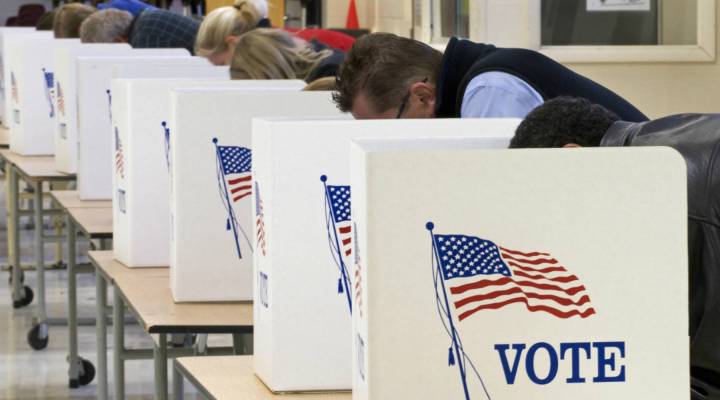
The midterms were about the economy, too
Share Now on:
The midterms were about the economy, too

Democrats will control the House of Representatives come January, ushering in at least two years of divided government. Despite long lines, broken machines, and bad weather in some locations, many issues drove what’s likely to be a record-breaking turnout for a midterm election. Republicans were able to retain control of the Senate, gaining two seats while Democrats lost one.
The top concerns, according to the Associated Press, were health care and immigration, but the surging economy, for which President Donald Trump has taken credit, was still on voters’ minds at the polls Tuesday.
In a recent Gallup survey, 78 percent of people said they considered the economy “extremely” or “very” important for their vote. Surprisingly, that’s lower than in any recent midterm election, and part of the reason political candidates felt free to focus more on political and social issues.
Health care
No issue was of greater concern to voters overall than health care, especially late in the campaign. Although the Democrats got an earlier start, as election day neared both parties were pouring millions of dollars into ads claiming their party would be the one to ensure protections for pre-existing conditions. In October alone, more than a million ads for House and Senate candidates flooded the airwaves, according to the Wesleyan Media Project, and nearly half were focused on health care, up from 41 percent in September.
Taxes
The GOP tax cut didn’t exactly turn out to be the campaign crowd pleaser Republicans had hoped. Despite about 80 percent of Americans getting a tax cut, the Marketplace-Edison Research Poll found many Americans just aren’t feeling it, and they can’t even understand the new tax laws. And the huge corporate tax cuts quickly became a popular way for Democrats to attack Republican incumbents for enriching the rich.
Jobs and Wages
With unemployment at record lows, the robust job market was a popular talking point during the campaign. Good news about wage growth didn’t come until much later. In the run up to the election, the Labor Department reported that average pay rose 3.1 percent over the past 12 months — the fastest year-over-year increase since 2009, giving Republicans evidence to argue that GOP control of government has been good for the economy.
Trade and Tariffs
The U.S. trade war with China, and, to a lesser extent, our other allies, is affecting businesses, farmers, and consumers. Gallup polling revealed 61 percent of registered voters viewed U.S. trade and tariff policies as a top issue in the election. Many of the farmers hard-hit by China’s retaliatory tariffs on agricultural goods live in red states, and President Trump campaigned aggressively in these communities to try to preserve their votes in tight races.
Recession Fears
Recession was barely mentioned during the campaign rhetoric. Even so, there is an undercurrent of concern about the future of the broader economy.
“I think [voters] are looking to hear from the people they elect how they might prevent the next economic crisis,” said Lisa Cook, an economist at the University of Michigan who formerly worked with President Obama’s Council of Economic Advisors. “Some people still haven’t recovered from the crisis, some people are accumulating student debt … and that kind of debt is untenable.”
Those concerns showed up in the latest Marketplace-Edison Research Poll, where a majority of respondents said they expect a recession in the next year.
There’s a lot happening in the world. Through it all, Marketplace is here for you.
You rely on Marketplace to break down the world’s events and tell you how it affects you in a fact-based, approachable way. We rely on your financial support to keep making that possible.
Your donation today powers the independent journalism that you rely on. For just $5/month, you can help sustain Marketplace so we can keep reporting on the things that matter to you.












